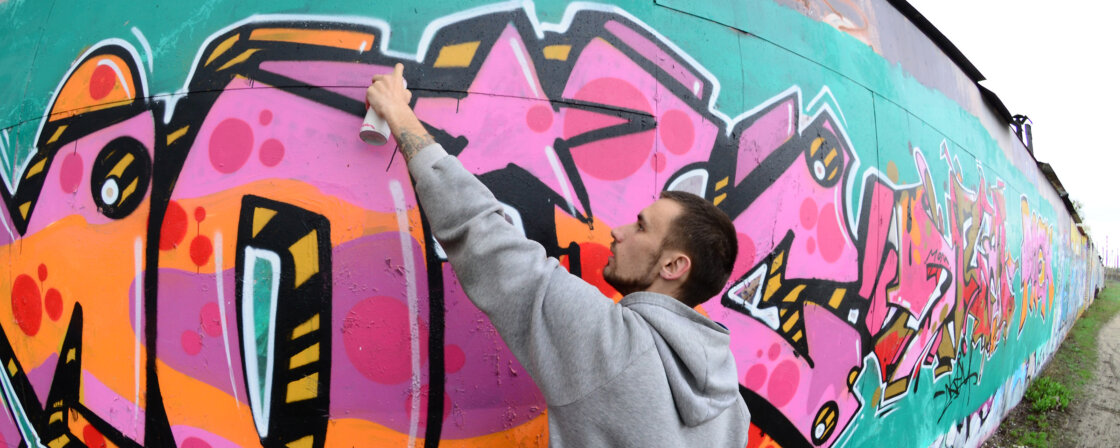What is criminal liability
Criminal liability means that a person can be legally prosecuted and punished for committing a crime.
Someone who meets the legal conditions is criminally liable:
- Over 15 years of age: Criminal liability begins when the person reaches the age of 15. Persons under the age of 15 cannot be held criminally liable and their cases are dealt with in other ways.
- Sanity: The person must have the capacity to recognize the wrongfulness of his/her conduct and to control his/her behaviour. Insanity may be due to mental illness, mental retardation or a temporary condition such as severe intoxication.
- Culpability: the offender must have a subjective relationship to the consequences of his or her actions. Culpability may be intentional or negligent. Intentional means that the person directly intended to commit the act or was resigned to the consequences. Negligent means that the person causes the consequence through lack of care or diligence (conscious or unconscious).
Criminal liability of minors (15 years and over)
The criminal liability of juveniles, i.e. persons aged between 15 and 18, has specific rules that differ from those for adults. These special arrangements are aimed at educating and reforming rather than punishing them.
Offences committed by juveniles are referred to as misdemeanours and are not punished, but are called measures. The criminal liability of juveniles is then primarily regulated by the Juvenile Justice Act. Let us look at the specifics:
Are you solving a similar problem?
Have you been charged and prosecuted?
You will only succeed in court if your defence is bulletproof. We will conduct a careful analysis of the case and propose a course of action for the defence in a criminal trial in which we will vigorously enforce your rights.
I want to help
- When you order, you know what you will get and how much it will cost.
- We handle everything online or in person at one of our 6 offices.
- We handle 8 out of 10 requests within 2 working days.
- We have specialists for every field of law.
Age and criminal liability
A person who has attained the age of 15 years but has not exceeded the age of 18 years is a juvenile. In addition to age, the juvenile’s intellectual and moral maturity shall also be taken into account. These concepts relate to the capacity of juveniles to understand the nature and consequences of their actions and to distinguish between right and wrong conduct. It is therefore clear that it will vary considerably from one accused juvenile to another and must therefore be assessed on an individual basis.
Deciding on moral and intellectual maturity can look like this:
martin, 16, committed vandalism by spraying various graffiti on the walls of the school along with several other juveniles. The incident was caught on a security camera and Martin was identified as one of the perpetrators.
Martin comes from a divorced family and spends most of his time with friends who have a negative influence on his behaviour. A psychological assessment showed that Martin has no intellectual disability but shows signs of immaturity in his decision making and social behaviour. Martin tends to be influenced by his peers and has a poor ability to resist group pressure. His behaviour is often impulsive and poorly thought out.
The court thus ultimately concluded that Martin was not sufficiently mature in mind and morals to fully understand the consequences of his actions and to be held criminally responsible for them.
Special proceedings
Juveniles are tried by a specialised juvenile court , and the Social and Legal Protection of Children Authority(OSPOD) and the Probation and Mediation Service are always involved in the whole process.
Tip for article
How to get out of court with probation? Find out in our next article.
Advocacy
The necessary defence applies throughout the criminal proceedings, including at all stages of the trial.
Confidentiality
Information about juvenile offenders, including their names, photographs, addresses and other identifying information, is not publicly available. This anonymity is protected by law to minimize negative impacts on their future lives and social integration. Court hearings with juveniles are also generally not public.
Link
Detention can only be ordered if there are serious reasons for it (e.g. a high chance that the juvenile might abscond, influence witnesses or continue criminal activities).
The length of detention for juveniles is limited to a maximum of two months or six months in the case of serious offences. In exceptional cases, it may be extended, again by up to two or six months.
Tip for article
What types of detention do we know and how long can you be locked up in it? Find out in the next article.
Penalties (measures)
As we have already announced, punishments for juveniles are called measures and there are three types of measures:
- Educational measures: educational measures are aimed at positively influencing the juvenile’s behaviour and his/her proper development. These include, for example, the supervision of a probation officer who supervises the juvenile’s behaviour, provides support and helps the juvenile to re-socialise; or educational restrictions to prevent the juvenile from behaving in an undesirable way (e.g. prohibiting him/her from visiting certain places and contact with certain persons).
- Protective measures: Protective measures aim to protect the juvenile from negative influences and ensure his/her proper development. They are chosen in particular in cases where the family of the juvenile is unable to provide the necessary education and support. Protective measures include, for example, protective education, where the juvenile is placed in a specialised institution.
- Punitive measures: Punitive measures are the most severe form of sanctions and include punishments designed to deter the juvenile from further criminal activity and at the same time to punish him/her for the offence committed. This includes, for example, suspended and unconditional prison sentences. However, juveniles always serve their prison sentences in facilities separate from adult prisoners.
Tip for article
Tip: Imprisonment is one of the most feared punishments. For what crimes can it be imposed, what exactly influences its amount and how is it carried out? Find out in our article.
Penalty rates
The imposition of an unconditional prison sentence is exceptional and the maximum sentence is half that of an adult (e.g. the maximum sentence for juveniles is 5 years, although for adults it would be 10 years).
Statute of limitations
Statutesof limitation are shorter than for adults and depend on the seriousness of the offence as follows:
- 10 years for exceptional sentences,
- 5 years for prison sentences of more than 10 years,
- 3 years for other offences.
Tip for article
Are you interested in how criminal integrity works? Integrity means different things in different situations. It will be perceived differently if you are planning to apply for a trade licence and differently if you are applying for a job with the police. Find out more about it in the next article.
Criminal liability of children (up to 15 years)
Children under the age of 15 are not criminally liable. This means that if a child under the age of 15 commits an act that would normally be considered criminal, he or she cannot be prosecuted and punished. This is called an otherwise criminal act. When a child commits an otherwise criminal act, it does not mean that he or she gets off scot-free, but there are specific procedures.
A child who has committed an otherwise criminal act is not subject to a traditional criminal prosecution but to special court proceedings. The child is also appointed a guardian who is also a lawyer. The court can then decide on measures to correct the child. These include:
- Educational obligation: the child is obliged to fulfil certain obligations that are set by the court. These obligations may include participating in specific educational activities, providing for restitution, etc.
- Educational restrictions: the court may impose certain restrictions on the child, such as prohibiting him/her from visiting certain places or from contacting specific persons who have a negative influence on the child.
- Reprimand with warning: The child is formally admonished by the court and is also given a warning that further offences will lead to more severe measures.
- Placement in a therapeutic, psychological or other appropriate educational programme in an educational care centre: The child is placed in a specialised programme aimed at addressing his/her specific problems, whether therapeutic, psychological or other educational programmes.
- Supervision by a probation officer: The child is supervised by a probation officer who monitors the child’s behaviour and provides support and guidance to prevent further offending.
- Protective Education: The child is placed in a protective education facility where he/she receives intensive educational and social care. This option is used for particularly serious offences or where other forms of rehabilitation have failed.
- Protective treatment: The child may also be ordered to receive protective treatment, which includes, for example, treatment for addictions or special treatment for mental illness.
Tip for article
Learn when you can be granted a presidential pardon, what rights the president has in this context, where the limits of this power extend, and the most controversial examples of it in the past.
Summary
Criminal liability begins at the age of 15, and younger persons cannot be prosecuted. There is special legislation for juveniles between the ages of 15 and 18 which emphasises education and re-socialisation rather than punishment. Juveniles also have specialised courts, the mandatory presence of a defence lawyer, identity protection and specific measures instead of traditional punishments. Children under the age of 15 are not criminally responsible and their illegal acts are dealt with through educational and protective measures. These measures include educational obligations, restrictions, reprimands, placement in special programs, supervision by a probation officer, protective education and protective treatment.




